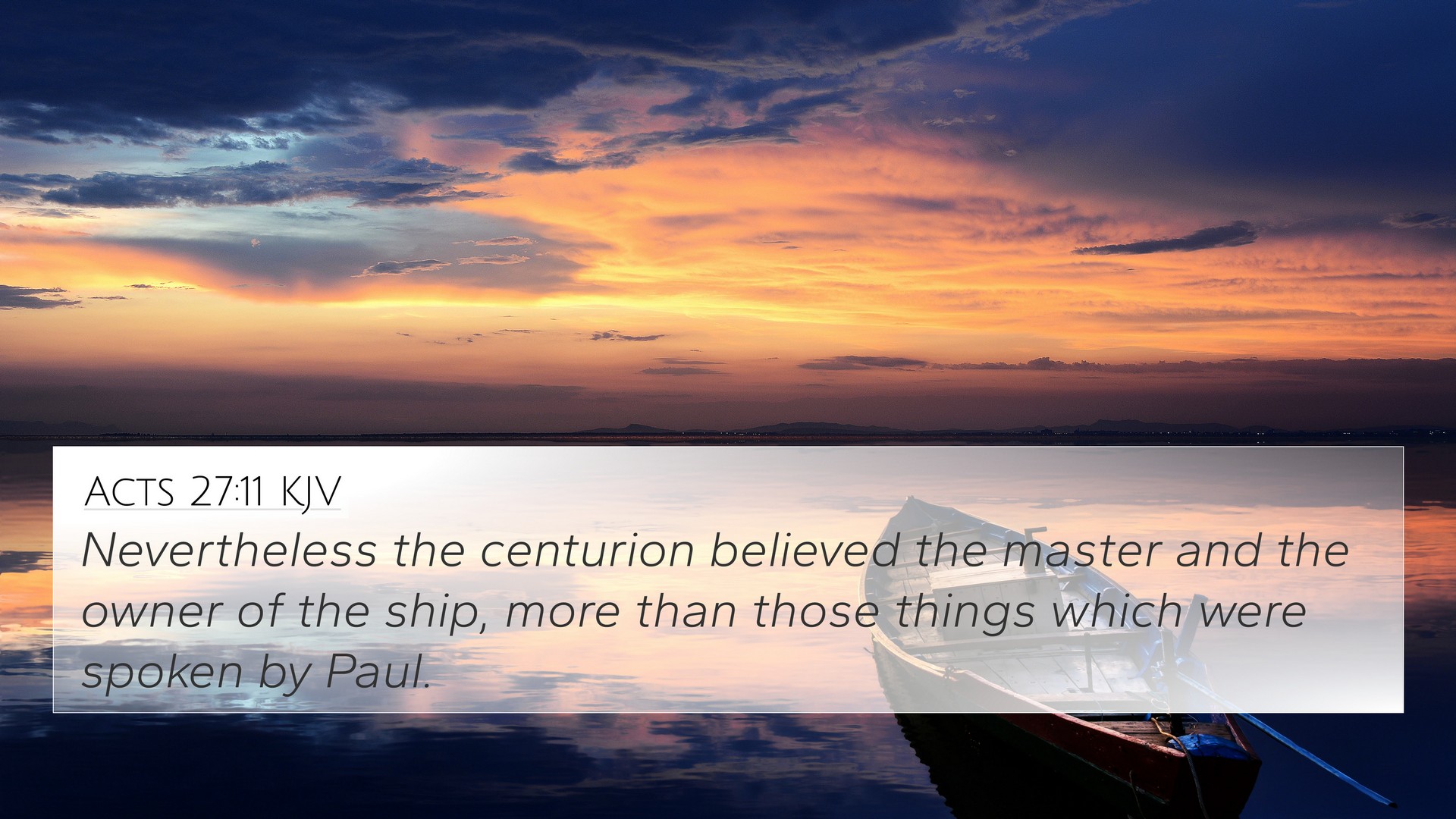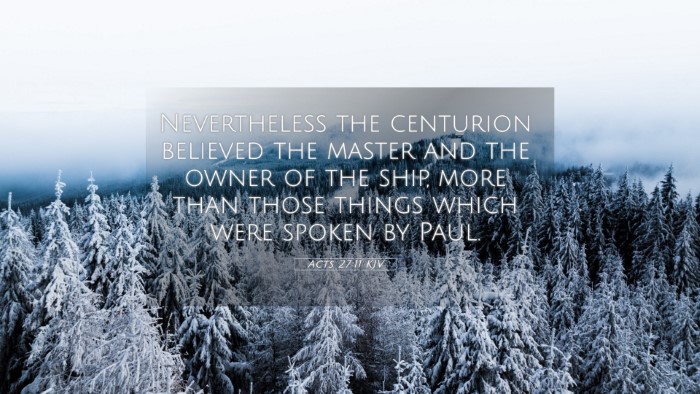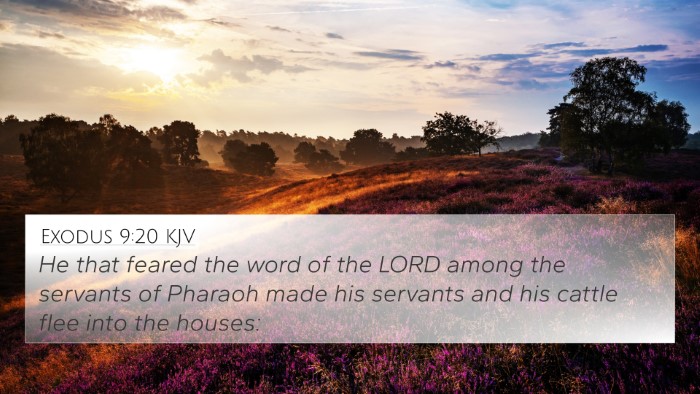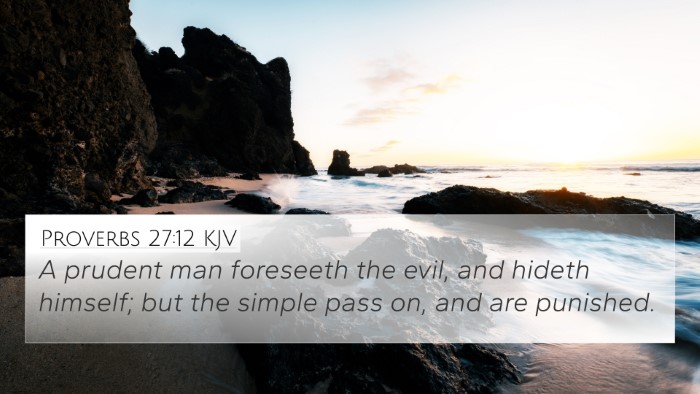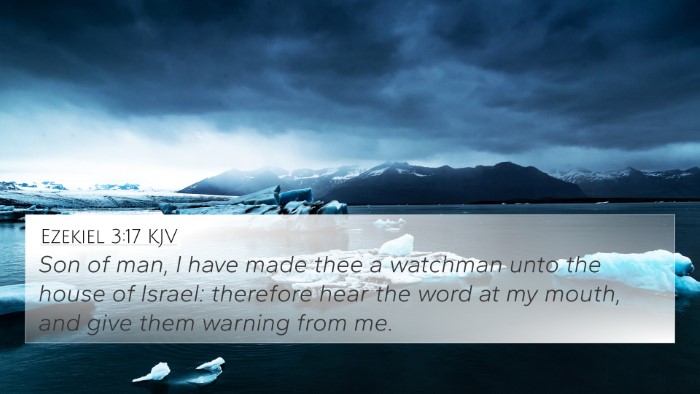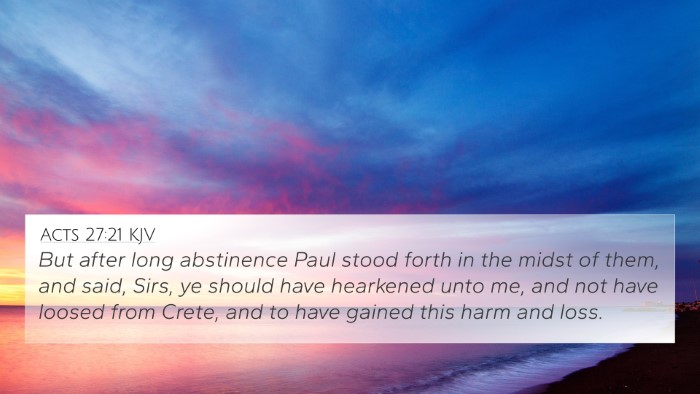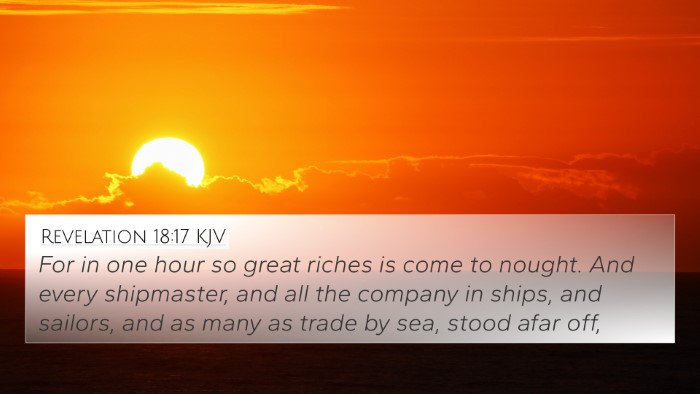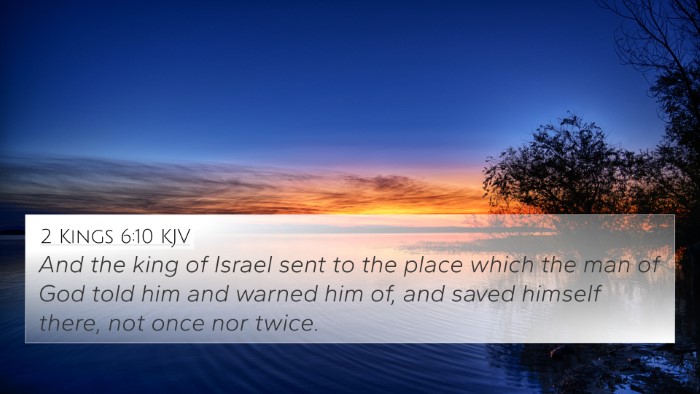Understanding Acts 27:11
Acts 27:11 states: “Nevertheless, the centurion took heed to the pilot and to the owner of the ship, more than those things which were spoken by Paul.” This verse offers a compelling insight into the dynamics of authority and trust during a perilous voyage. The centurion, who serves as the officer in charge, chooses to prioritize the words of the ship's pilot and owner over the prophetic warning issued by Paul. This choice sets in motion a series of challenges that ultimately lead to a shipwreck.
Context of the Verse
The context of Acts 27 involves Paul’s journey to Rome as a prisoner, where he is to stand trial. As they prepare to set sail, Paul warns the crew about the dangers ahead, propelled by divine revelation. However, the earthly authorities dismiss his counsel, favoring the expertise of those experienced in maritime travel.
Commentary Insights
- Matthew Henry: Henry posits that the centurion's decision highlights the tendency of people to default to human wisdom rather than divine guidance. He emphasizes the importance of heeding God's warnings through His servants.
- Albert Barnes: Barnes reflects on the authority structure within the ship, pointing out how worldly experience often overshadows spiritual discernment. He notes that this incident underscores the folly of ignoring divine wisdom.
- Adam Clarke: Clarke elaborates on the reasons the centurion made his decision, elaborating that it illustrates a common human inclination to trust visible, tangible expertise over the unseen guidance of God. He emphasizes the spiritual consequences of such choices.
Thematic Connections
This verse can be cross-referenced with various other scriptures that discuss divine authority and human wisdom, illustrating the ongoing dialogue between faith and experience.
- Proverbs 3:5-6: "Trust in the LORD with all thine heart; and lean not unto thine own understanding." This verse reinforces the idea of trusting divine guidance over human reasoning.
- Isaiah 55:8-9: "For my thoughts are not your thoughts, neither are your ways my ways, saith the LORD." This verse reminds believers that God's wisdom transcends human logic.
- 1 Corinthians 1:25: "Because the foolishness of God is wiser than men; and the weakness of God is stronger than men." This speaks to the theme of divine wisdom appearing foolish to the world.
- Acts 27:21: Paul’s subsequent encouragement to the crew after their decision shows the mercy and guidance of God despite initial human folly.
- James 1:5: "If any of you lack wisdom, let him ask of God, that giveth to all men liberally, and upbraideth not;" This encourages seeking divine wisdom in decision-making.
- Romans 8:28: "And we know that all things work together for good to them that love God." Even flawed human decisions can lead to God's ultimate plan.
- Philippians 2:19-21: Here, Paul discusses the importance of being led by the Spirit rather than self-interest.
Application of the Verse
Acts 27:11 serves as a significant reminder for contemporary believers about the importance of spiritual discernment amid worldly counsel. It challenges readers to consider whose guidance they trust when making decisions, especially during trying circumstances.
Practical Resources for Cross-Referencing
For those interested in deeper biblical studies and understanding connections between scriptures, consider the following tools:
- Bible Concordance: A comprehensive tool that allows you to find words and their occurrences throughout the Bible.
- Bible Cross-Reference Guide: Guides that provide scripture references related to specific verses for deeper study and prayer.
- Cross-Reference Bible Study: Methods to systematically approach scripture by linking related texts.
- Bible Reference Resources: Books and online materials that illustrate connections between the Old and New Testaments.
- Bible Chain References: Systems that allow you to follow themes throughout the scripture in a linked manner.
Conclusion
Understanding Acts 27:11 encourages believers to reflect on the sources of their wisdom and guidance in life. By juxtaposing human authority against divine instruction, the scripture beckons an introspective approach to decision-making, emphasizing the necessity of aligning our trust with God's will.
